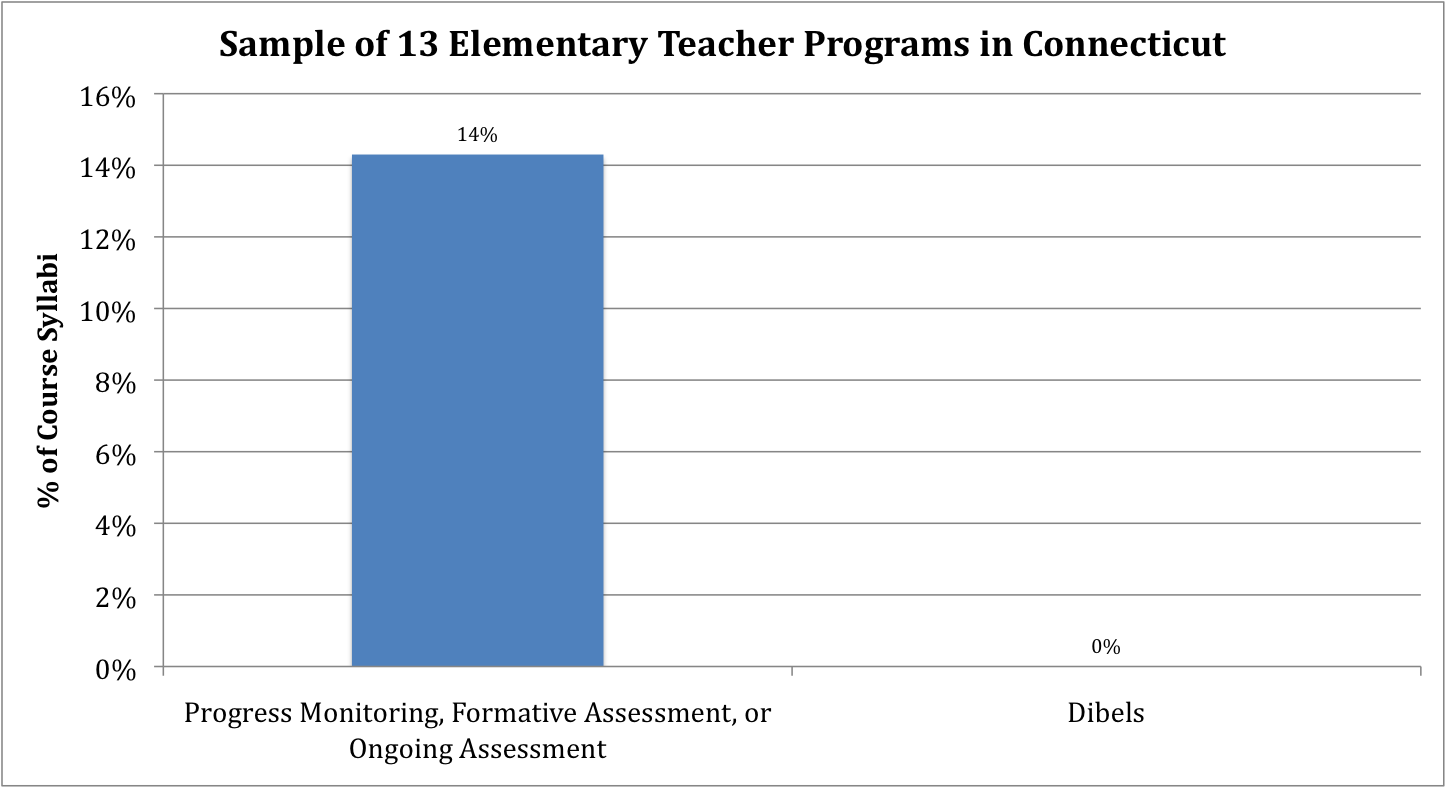Are teacher preparation programs teaching formative assessment?
Why is this question important? Fuch & Fuchs, 1986 identified Formative Assessment (progress monitoring, ongoing assessment, rapid assessment) as one the most powerful tools available to teachers for improving student performance. Additionally, Yeh, 2007 identified rapid assessment as a very cost effective intervention when compared to many of the currently popular structural school reform interventions (charter schools, increased spending, school vouchers, or high stakes testing). Knowing the formative assessment can result in improvement in student performance, it is essential teacher preparation programs teach this tool to prospective teachers.
See further discussion below.

Source: Response to Intervention and Teacher Preparation, (Educating Individuals with Disabilities Chapter 11), 2008
Results: The study found that only 14% of the syllabi described teaching formative assessment to prospective teachers. The research also found that Dynamic Indicators of Basic Early Literacy Skills (Dibels), a popular curriculum built around progress monitoring, was not mention once.
Implications: Despite formative assessment’s great potential for improving student achievement scores, teacher preparation programs surveyed in Connecticut were not emphasizing this powerful tool. If what occurred in Connecticut can be generalized to other states and other preparation programs, inadequate training in assessment has the potential to undermine major reform efforts such as Response to Intervention (RtI) which are built around ongoing assessment of students, as well as impact on other education innovations such as Curriculum based measures that also rely on ongoing assessment. Poor training of formative assessment risks the inadequate education a new generation of teachers who are increasingly being held accountable for the failure of the students they teach.
Authors: Louise Spear-Swerling
Publisher: Springer Publishing Company
Study Description: Spear-Swerling conducted a survey of teacher preparation schools in the state of Connecticut to identify how effectively these schools were at teaching formative assessment. 13 elementary teacher preparation programs responded. The study examined course syllabi from each of the programs to identify the frequency formative assessment or comparable terms (progress monitoring, rapid assessment, or ongoing assessment) were used in describing the content of the courses.
Definitions:
1. Formative Assessment (Progress monitoring, rapid assessment, and ongoing assessment): Formative assessments are administered for the purpose of measuring progress that provides feedback to the teacher for the purpose of improving instruction.
2. Dynamic Indicators of Basic Early Literacy Skills (Dibels): A set of procedures and measures for assessing the acquisition of early literacy skills from kindergarten through sixth grade. They are designed to be short (one minute) fluency measures used to regularly monitor the development of early literacy and early reading skills.
3. Curriculum Based Measures: The term curriculum-based measures (CBM) refers to a classroom measurement that uses "direct observation and recording of a student's performance in the local curriculum as a basis for gathering information to make instructional decisions" (Deno, 1987, p. 41)
Citation: Spear-Swerling, L., Response to Intervention and Teacher Preparation, (Educating Individuals with Disabilities, Chapter 11), (2008)
